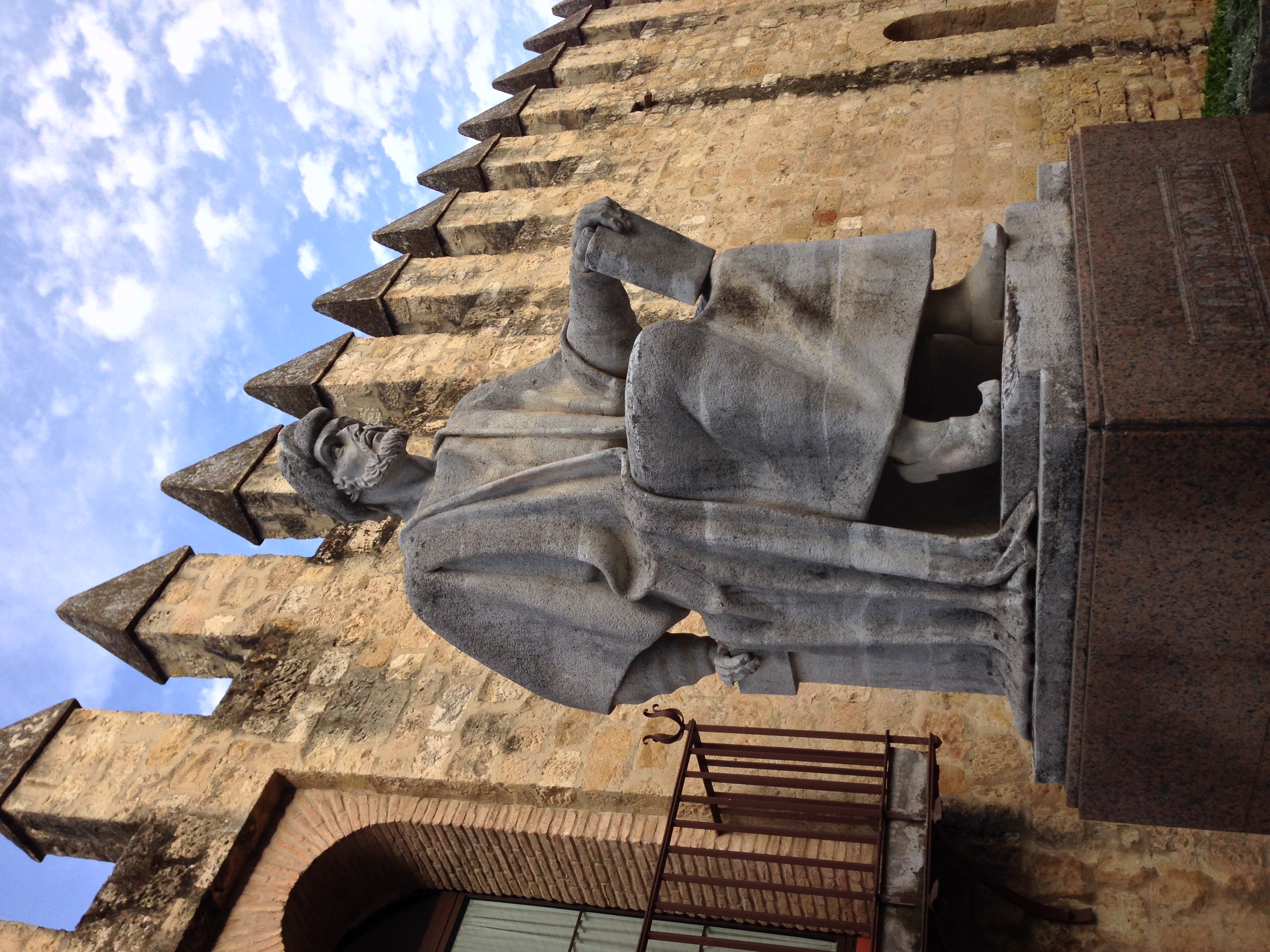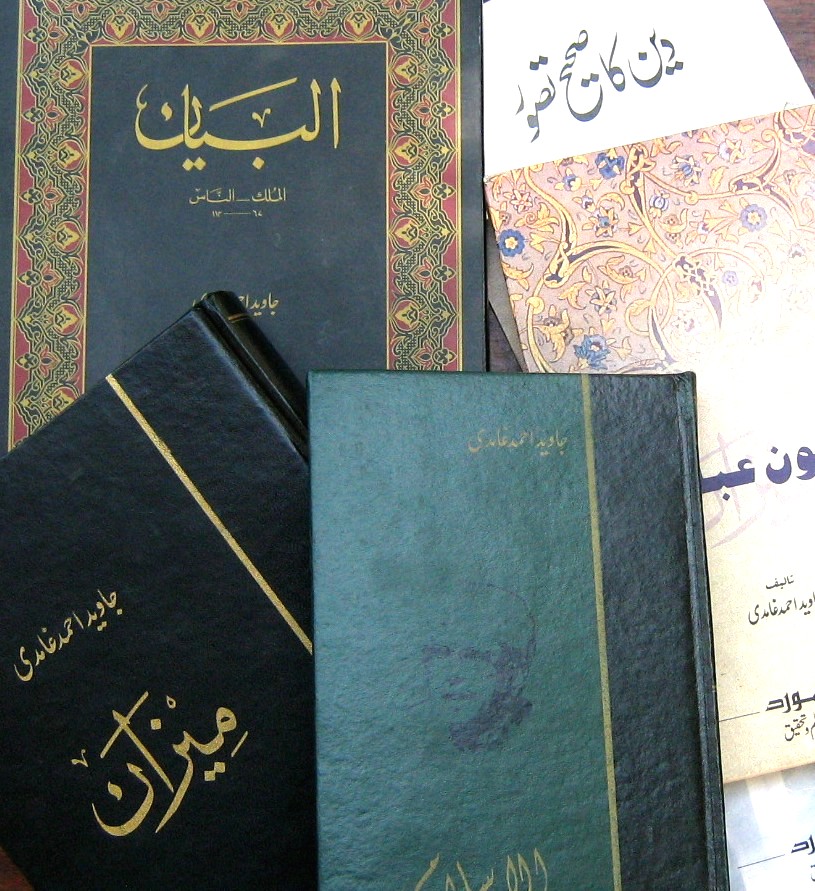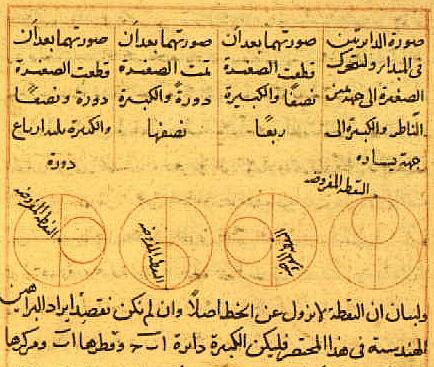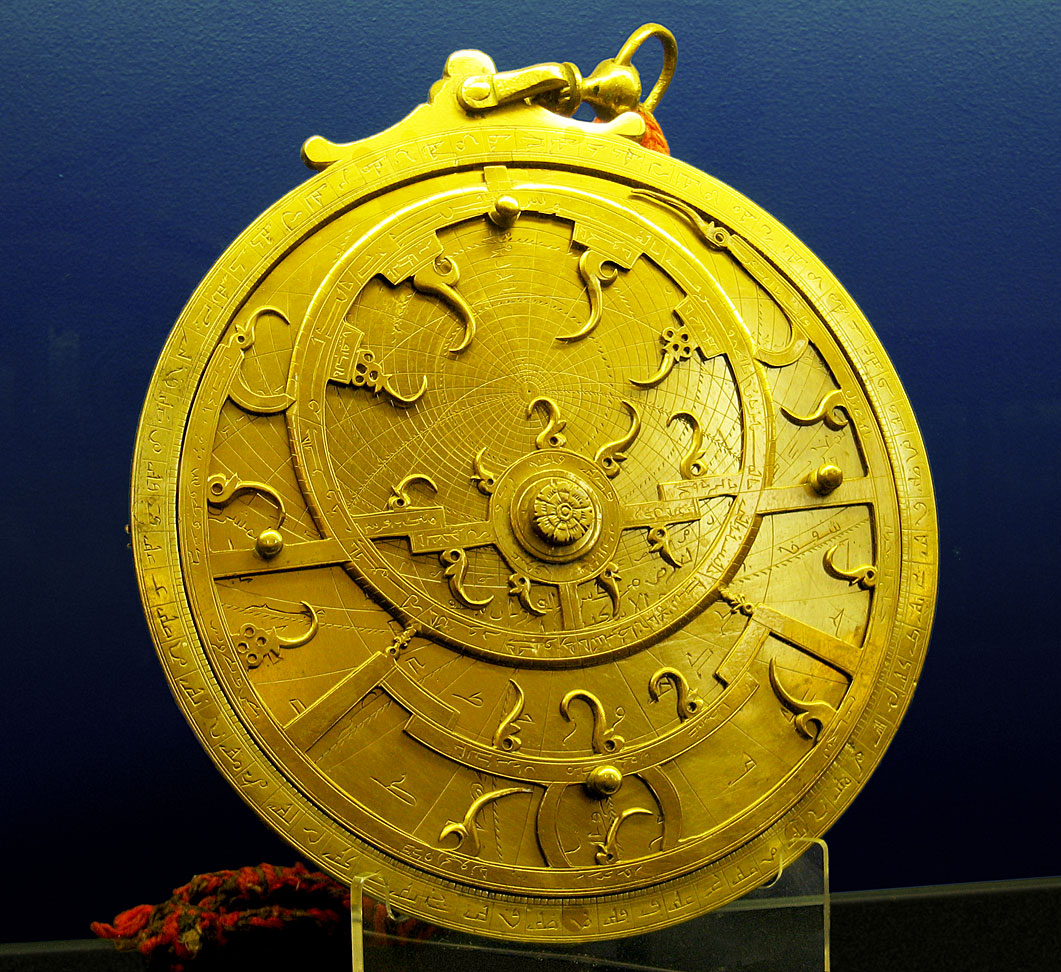|
The Incoherence Of The Incoherence
''The Incoherence of the Incoherence'' ( ar, تهافت التهافت ''Tahāfut al-Tahāfut'') by Andalusian Muslim polymath and philosopher Averroes (Arabic , ''ibn Rushd'', 1126–1198) is an important Islamic philosophical treatise in which the author defends the use of Aristotelian philosophy within Islamic thought. It was written in the style of a dialogue against al-Ghazali's claims in '' The Incoherence of the Philosophers'' (''Tahāfut al-Falasifa''), which criticized Neoplatonic thought. Originally written in Arabic, ''The Incoherence of the Incoherence'' was subsequently translated into many other languages. The book is considered Averroes' landmark; in it, he tries to create harmony between faith and philosophy. Background In ''The Incoherence of the Philosophers'', the Sufi-sympathetic imam al-Ghazali ("Algazel") of the Ash'ari school of Islamic theology argued against Avicennism, denouncing philosophers such as Avicenna (''ibn Sina'') and al-Farabi (' ... [...More Info...] [...Related Items...] OR: [Wikipedia] [Google] [Baidu] |
Statue Of Averroes In Córdoba, Spain
A statue is a free-standing sculpture in which the realistic, full-length figures of persons or animals are carved or cast in a durable material such as wood, metal or stone. Typical statues are life-sized or close to life-size; a sculpture that represents persons or animals in full figure but that is small enough to lift and carry is a statuette or figurine, whilst one more than twice life-size is a colossal statue. Statues have been produced in many cultures from prehistory to the present; the oldest-known statue dating to about 30,000 years ago. Statues represent many different people and animals, real and mythical. Many statues are placed in public places as public art. The world's tallest statue, '' Statue of Unity'', is tall and is located near the Narmada dam in Gujarat, India. Color Ancient statues often show the bare surface of the material of which they are made. For example, many people associate Greek classical art with white marble sculpture, but there is evid ... [...More Info...] [...Related Items...] OR: [Wikipedia] [Google] [Baidu] |
Schools Of Islamic Theology
Schools of Islamic theology are various Islamic schools and branches in different schools of thought regarding '' ʿaqīdah'' (creed). The main schools of Islamic Theology include the Qadariyah, Falasifa, Jahmiyya, Murji'ah, Muʿtazila, Batiniyya, Ashʿarī, Māturīdī, and Aṯharī. The main schism between Sunnī, Shīʿa, and Kharijite branches of Islam was initially more political than theological, but over time theological differences have developed throughout the history of Islam. Divinity schools in Islam According to the '' Encyclopaedia of the Qurʾān'' (2006), "The Qurʾān displays a wide range of theological topics related to the religious thought of late antiquity and through its prophet Muḥammad presents a coherent vision of the creator, the cosmos and man. The main issues of Muslim theological dispute prove to be hidden under the wording of the qurʾānic message, which is closely tied to Muḥammad's biography". However, modern historians a ... [...More Info...] [...Related Items...] OR: [Wikipedia] [Google] [Baidu] |
Al-Mawrid
Javed Ahmad Ghamidi ( ur, , translit=Jāvēd Aḥmad Ghāmidī; April 7, 1952) is a Pakistani philosopher, educationist, and scholar of Islam. He is also the founding President of Al-Mawrid Institute of Islamic Sciences and its sister organisation ''Danish Sara''. He became a member of the Council of Islamic Ideology (responsible for giving legal advice on Islamic issues to the Pakistani Government and the country's Parliament) on 28 January 2006, where he remained for a couple of years. He also taught Islamic studies at the Civil Services Academy for more than a decade from 1979 to 1991. He was also a student of Islamic scholar and exegete, Amin Ahsan Islahi. He is running an intellectual movement similar to Wasatiyyah, on the popular electronic media of Pakistan.Masud(2007) Currently he is Principal Research Fellow and Chief Patron of Ghamidi Center of Islamic Learning in United States. Javed Ahmad Ghamidi was named in ''The Muslim 500'' (The World's Most Influential Musli ... [...More Info...] [...Related Items...] OR: [Wikipedia] [Google] [Baidu] |
Averroism
Averroism refers to a school of medieval philosophy based on the application of the works of 12th-century Andalusian philosopher Averroes, (known in his time in Arabic as ابن رشد, ibn Rushd, 1126–1198) a commentator on Aristotle, in 13th-century Latin Christian scholasticism. Latin translations of Averroes' work became widely available at the universities which were springing up in Western Europe in the 13th century, and were received by scholasticists such as Siger of Brabant and Boetius of Dacia, who examined Christian doctrines through reasoning and intellectual analysis. The term ''Averroist'' was coined by Thomas Aquinas in the restricted sense of the Averroists' " unity of the intellect" doctrine in his book ''De unitate intellectus contra Averroistas''. Based on this, ''Averroism'' came to be near-synonymous with atheism in late medieval usage. As a historiographical category, ''Averroism'' was first defined by Ernest Renan in ''Averroès et l'averroïsm ... [...More Info...] [...Related Items...] OR: [Wikipedia] [Google] [Baidu] |
Quran
The Quran (, ; Standard Arabic: , Quranic Arabic: , , 'the recitation'), also romanized Qur'an or Koran, is the central religious text of Islam, believed by Muslims to be a revelation from God. It is organized in 114 chapters (pl.: , sing.: ), which consist of verses (pl.: , sing.: , cons.: ). In addition to its religious significance, it is widely regarded as the finest work in Arabic literature, and has significantly influenced the Arabic language. Muslims believe that the Quran was orally revealed by God to the final prophet, Muhammad, through the archangel Gabriel incrementally over a period of some 23 years, beginning in the month of Ramadan, when Muhammad was 40; and concluding in 632, the year of his death. Muslims regard the Quran as Muhammad's most important miracle; a proof of his prophethood; and the culmination of a series of divine messages starting with those revealed to Adam, including the Torah, the Psalms and the Gospel. The word ''Quran'' ... [...More Info...] [...Related Items...] OR: [Wikipedia] [Google] [Baidu] |
Aristotle
Aristotle (; grc-gre, Ἀριστοτέλης ''Aristotélēs'', ; 384–322 BC) was a Greek philosopher and polymath during the Classical period in Ancient Greece. Taught by Plato, he was the founder of the Peripatetic school of philosophy within the Lyceum and the wider Aristotelian tradition. His writings cover many subjects including physics, biology, zoology, metaphysics, logic, ethics, aesthetics, poetry, theatre, music, rhetoric, psychology, linguistics, economics, politics, meteorology, geology, and government. Aristotle provided a complex synthesis of the various philosophies existing prior to him. It was above all from his teachings that the West inherited its intellectual lexicon, as well as problems and methods of inquiry. As a result, his philosophy has exerted a unique influence on almost every form of knowledge in the West and it continues to be a subject of contemporary philosophical discussion. Little is known about his life. Aristotle was ... [...More Info...] [...Related Items...] OR: [Wikipedia] [Google] [Baidu] |
Islam
Islam (; ar, ۘالِإسلَام, , ) is an Abrahamic religions, Abrahamic Monotheism#Islam, monotheistic religion centred primarily around the Quran, a religious text considered by Muslims to be the direct word of God in Islam, God (or ''Allah'') as it was revealed to Muhammad, the Muhammad in Islam, main and final Islamic prophet.Peters, F. E. 2009. "Allāh." In , edited by J. L. Esposito. Oxford: Oxford University Press. . (See alsoquick reference) "[T]he Muslims' understanding of Allāh is based...on the Qurʿān's public witness. Allāh is Unique, the Creator, Sovereign, and Judge of mankind. It is Allāh who directs the universe through his direct action on nature and who has guided human history through his prophets, Abraham, with whom he made his covenant, Moses/Moosa, Jesus/Eesa, and Muḥammad, through all of whom he founded his chosen communities, the 'Peoples of the Book.'" It is the Major religious groups, world's second-largest religion behind Christianity, w ... [...More Info...] [...Related Items...] OR: [Wikipedia] [Google] [Baidu] |
Science In The Medieval Islamic World
Science in the medieval Islamic world was the science developed and practised during the Islamic Golden Age under the Umayyads of Córdoba, the Abbadids of Seville, the Samanids, the Ziyarids, the Buyids in Persia, the Abbasid Caliphate and beyond, spanning the period roughly between 786 and 1258. Islamic scientific achievements encompassed a wide range of subject areas, especially astronomy, mathematics, and medicine. Other subjects of scientific inquiry included alchemy and chemistry, botany and agronomy, geography and cartography, ophthalmology, pharmacology, physics, and zoology. Medieval Islamic science had practical purposes as well as the goal of understanding. For example, astronomy was useful for determining the '' Qibla'', the direction in which to pray, botany had practical application in agriculture, as in the works of Ibn Bassal and Ibn al-'Awwam, and geography enabled Abu Zayd al-Balkhi to make accurate maps. Islamic mathematicians such as Al-Khwariz ... [...More Info...] [...Related Items...] OR: [Wikipedia] [Google] [Baidu] |
Mathematics In Medieval Islam
Mathematics during the Golden Age of Islam, especially during the 9th and 10th centuries, was built on Greek mathematics (Euclid, Archimedes, Apollonius) and Indian mathematics ( Aryabhata, Brahmagupta). Important progress was made, such as full development of the decimal place-value system to include decimal fractions, the first systematised study of algebra, and advances in geometry and trigonometry. Arabic works played an important role in the transmission of mathematics to Europe during the 10th—12th centuries. Concepts Algebra The study of algebra, the name of which is derived from the Arabic word meaning completion or "reunion of broken parts", flourished during the Islamic golden age. Muhammad ibn Musa al-Khwarizmi, a Persian scholar in the House of Wisdom in Baghdad was the founder of algebra, is along with the Greek mathematician Diophantus, known as the father of algebra. In his book '' The Compendious Book on Calculation by Completion and Balancin ... [...More Info...] [...Related Items...] OR: [Wikipedia] [Google] [Baidu] |
Astronomy In The Medieval Islamic World
Islamic astronomy comprises the astronomical developments made in the Islamic world, particularly during the Islamic Golden Age (9th–13th centuries), and mostly written in the Arabic language. These developments mostly took place in the Middle East, Central Asia, Al-Andalus, and North Africa, and later in the Far East and India. It closely parallels the genesis of other Islamic sciences in its assimilation of foreign material and the amalgamation of the disparate elements of that material to create a science with Islamic characteristics. These included Greek, Sassanid, and Indian works in particular, which were translated and built upon. Islamic astronomy played a significant role in the revival of Byzantine and EuropeanSaliba (1999). astronomy following the loss of knowledge during the early medieval period, notably with the production of Latin translations of Arabic works during the 12th century. Islamic astronomy also had an influence on Chinese astronomy and Malian as ... [...More Info...] [...Related Items...] OR: [Wikipedia] [Google] [Baidu] |
Logic In Islamic Philosophy
Early Islamic law placed importance on formulating standards of argument, which gave rise to a "novel approach to logic" ( ''manṭiq'' "speech, eloquence") in Kalam (Islamic scholasticism). However, with the rise of the Mu'tazili philosophers, who highly valued Aristotle's ''Organon'', this approach was displaced by the older ideas from Hellenistic philosophy. The works of al-Farabi, Avicenna, al-Ghazali and other Persian Muslim logicians who often criticized and corrected Aristotelian logic and introduced their own forms of logic, also played a central role in the subsequent development of European logic during the Renaissance. According to the Routledge Encyclopedia of Philosophy: Important developments made by Muslim logicians included the development of "Avicennian logic" as a replacement of Aristotelian logic. Avicenna's system of logic was responsible for the introduction of hypothetical syllogism, temporal modal logic and inductive logic. Other important developments ... [...More Info...] [...Related Items...] OR: [Wikipedia] [Google] [Baidu] |
Physics In The Medieval Islamic World
The natural sciences saw various advancements during the Golden Age of Islam (from roughly the mid 8th to the mid 13th centuries), adding a number of innovations to the Transmission of the Classics (such as Aristotle, Ptolemy, Euclid, Neoplatonism).''Classical Arabic Philosophy An Anthology of Sources'', Translated by Jon McGinnis and David C. Reisman. Indianapolis: Hackett Publishing Company, 2007. pg. xix During this period, Islamic theology was encouraging of thinkers to find knowledge. Thinkers from this period included Al-Farabi, Abu Bishr Matta, Ibn Sina, al-Hassan Ibn al-Haytham and Ibn Bajjah. These works and the important commentaries on them were the wellspring of science during the medieval period. They were translated into Arabic, the ''lingua franca'' of this period. Islamic scholarship in the sciences had inherited Aristotelian physics from the Greeks and during the Islamic Golden Age developed it further. However the Islamic world had a greater respect for knowle ... [...More Info...] [...Related Items...] OR: [Wikipedia] [Google] [Baidu] |






.jpg)




